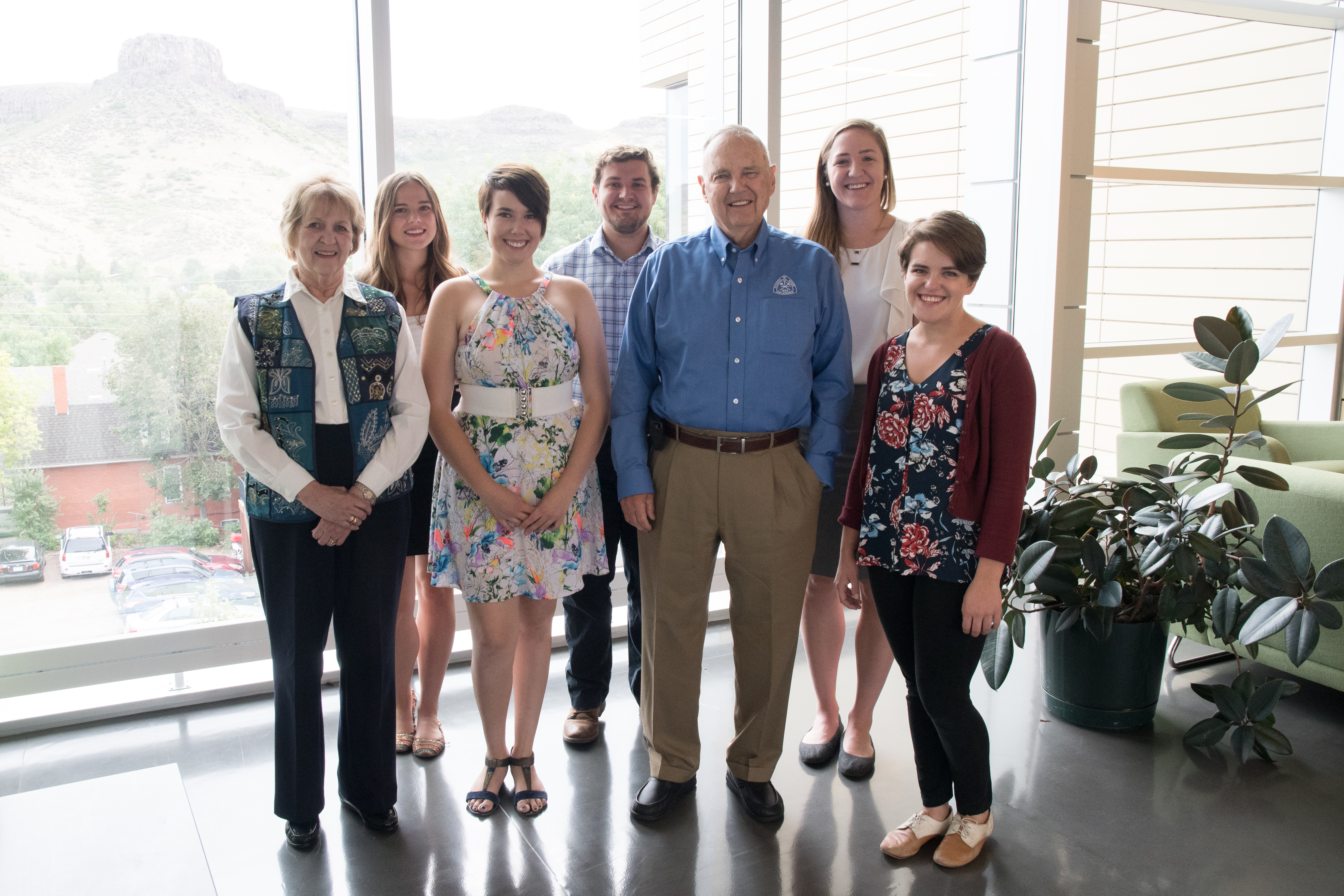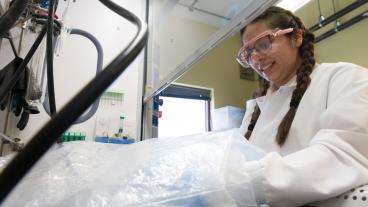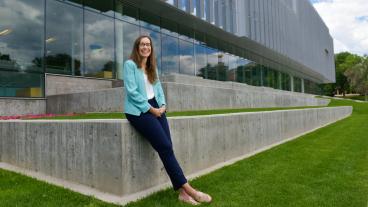
Five Colorado School of Mines students have been recognized for their commitment to using engineering to help address society’s greatest challenges with scholarships from the Shultz Family Leadership in Humanitarian Engineering Fund.
The 2017-2018 Shultz Humanitarian Engineering Scholars are Maggie Guinta, Rosalie O’Brien, Wolfgang Reichard, Elizabeth Tomon and Dorothy Walch.
Shultz Scholars receive approximately $8,500 per semester – equivalent to the cost of one semester of in-state tuition and fees – and must be enrolled in either the Humanitarian Engineering or Leadership in Social Responsibility minors.
During the year, the undergraduate students serve as program ambassadors, representing HE and LSR at campus events and conferences, and are expected to seek out new opportunities for collaboration with faculty, alumni, corporations and nongovernmental organizations.
“Students in the Humanitarian Engineering Program learn how engineers can serve communities, whether through work for a community development organization or work for a corporate employer. This semester’s Shultz Scholars exemplify the diversity of students who participate in HE, with their interests ranging from innovation and startups to public works and water,” said Jessica Smith, interim director of the Humanitarian Engineering Program and associate professor of Engineering, Design and Society.
Here’s more about the 2017-2018 Shultz Scholars, in their own words:
Maggie Guinta
I'm a junior majoring in environmental engineering and I decided to enroll in the humanitarian engineering minor after traveling to Nepal on a service trip. On the trip, our team emphasized building relationships to understand the communities' needs and to collaborate on sustainable, long-term solutions to engineering and nonengineering problems. As an environmental engineering major, I saw this as a rewarding application for my degree and as a challenge since I'd never designed under cultural, economic or political constraints. I also work under ReNUWit, a grant to improve urban water infrastructure, and now see infrastructure as a way to improve quality of life. Ultimately, I hope to combine my interest in water systems and sustainable community development to improve water access and quality domestically and abroad.
Rosalie O’Brien
I'm a senior in environmental engineering with a minor in humanitarian engineering. Thanks to the opportunities and experiences from my minor, my undergraduate career has been focused on the nexus between the extractive industries and society. This past summer, I worked at an international NGO called One Earth Future where I researched the links between criminal activity and artisanal and small-scale mining around the world. I'm also on my second year of ethnographic research examining community opinions on produced water treatment technologies in areas directly impacted by the oil and gas industry as part of the ConocoPhillips Center for a Sustainable WE2ST. My passion lies in understanding the ways in which engineering, technology and industry affect communities and finding ways to address weaknesses in that relationship.
Wolfgang (Wolf) Reichard
I’m a senior in the Mechanical Engineering Department with a passion for applying creativity to problem-solving. Passionate about urban farming, tiny houses and entrepreneurial solutions to international poverty, the Humanitarian Engineering Program at Mines was a natural first step. I have experience with startups researching agricultural mechanization and supply chains in rural Africa and am currently employed by EdgeDweller Inc. as an innovation engineer. I’m hoping to begin bridging more gaps between the aid community and engineering and I have participated in the Posner Center's Poverty Hack and plan to join the Peace Corps.
Elizabeth Tomon
I'm a senior in chemical engineering with a minor in leadership in social responsibility. I'm very passionate about helping women through engineering. I've been working to better understand different injustices toward women in the world and figuring out what role engineers can play in providing sustainable solutions. In the developing world, when girls begin menstruation they can miss up to three months of school, limiting their ability to complete their education and develop skills that will allow them to contribute economically to their families and communities because feminine hygiene products are not readily available to them. Long term, I want to help develop engineering solutions that allow women across the world to have better opportunities.
Dorothy Walch
I'm a junior in civil engineering with a minor in humanitarian engineering. I am particularly passionate about the intersection between large infrastructure and people. This summer I had an internship with the Colorado Department of Transportation. This exposed me to transportation projects around the Denver area, such as the Central I-70 project that will begin construction soon. Transportation projects have a huge impact on everyone, but they tend to affect low-income communities the most. In my future career I hope to create transportation systems that benefit low-income urban communities and relieve urban cores of heavy traffic.
CONTACT
Emilie Rusch, Public Information Specialist, Communications and Marketing | 303-273-3361 | erusch@mines.edu
Mark Ramirez, Managing Editor, Communications and Marketing | 303-273-3088 | ramirez@mines.edu



